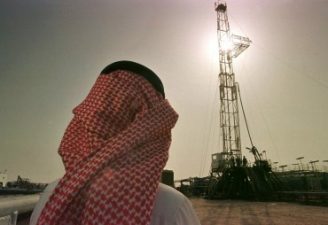 Lebanon goes green with seed bank, but can this memory keeper for nature fight GMOs?
Lebanon goes green with seed bank, but can this memory keeper for nature fight GMOs?
Lebanon harbors over 2600 plant species of which 119 are counted to be endemic. The unique climatic and landscape diversity in Lebanon has shaped 22 bio-climatic zones which fosters one of the most precious ecological services: genetic diversity. Unfortunately, the conservation of biodiversity in Lebanon is increasingly at risk due the largely uncontrolled and unidentified introduction of Genetically Modified Organisms (GMO) in the domestic market and the absence of national policies that specifically outline biosafety legislation.
Lebanon has only recently ratified the Cartagena Protocol on Biosafety (October 2008) a convention that provides guidance for the rational management of the risks associated with the use of biotechnologies. Nevertheless, there is no official policy for the detection and identification of produce that contains GMO. The lack of legislations that monitor biotechnologies are likely to have unidentified effects on the future of domestic biodiversity.
Biotechnologies interfere with central aspects of life. By altering and contaminating the genetic information of crop species, GMOs risk eroding the indigenous knowledge of the native varieties of seeds and species which architect local biodiversity.
The resulting rapid and widespread extinction of crop varieties through GMO monocultures, leave farmers with fewer options to address problems caused by unpredictable climate change.
One solution to preserving biodiversity is through seed banks. Naydaya founded by Vandana Shiva is a program that has established 65 Community Seed Banks across India. The idea is that seeds contain historic memory. Seeds are the first stage in the food chain and the ultimate symbol of food security. Therefore seeds are central for farmers and society since the free and uncontaminated exchange of seeds ensures biodiversity is maintained and farmers have “tools” at their disposal to remain resilient towards climate change.
Naydaya’s conservation initiative “represents the accumulation over centuries of people’s knowledge and, by being a reflection of the options available to them, it [seeds] represents their choice.”
In other words, seeds are inextricably linked to the fundamental human right of food security which is increasingly being undermined through “Patents on Life” and GMO companies like Monsanto. This has already had controversial impacts in India, and I encourage readers to watch the documentary “Life Running Out of Control” for more information on the impacts of GMO’s. But what does the future of “seeds” in Lebanon look like?
Kew’s Millennium Seed Bank’s global partnership is a network of 120 partners in 54 countries aims to secure the safe storage of 25% of the world’s plants by 2020, targeting species and regions most at risk from climate change and the ever-increasing impact of human activities.
In Lebanon, 33 percent of its flora has been collected by Kew and more than 1,200 seed samples of cereal, legume, and their wild relatives, have been previously collected by the International Center for Agricultural Research in the Dry Areas.
This seems like a positive step, but is banking on seeds enough? Will this solution insure against biodiversity loss brought about by the introduction of GMOs? In other words, in the face of GMO contaminated land, will the reintroduction of native seeds successfully restore the indigenous habitat?
The problem is that seed banks may not be necessarily giving local farmers the “power” to determine their future income and productivity because the introduction of GMOs risk altering entire ecosystems and the reintroduction of indigenous seeds may prove to be futile in restoring biodiversity and resolving issues related to crop resilience against climate change.
The truth is that there is really only one sure solution, GMOs should simply be banned. Saudi Arabia is the only country in the Middle East to have banned GMOs and other countries in the region including Lebanon, should follow suit.
Image via tgerus




From what I understand so far, GMOs are entering Lebanon without identification via imports of seeds, basic foodstuffs such as grain and manufactured foods from the US, Canada and South/Latin America. What we really need is a baseline: labelling would seem to be the most logical and all-encompassing way of doing this as a first step. Am I right? What do you think?
I would love to see an outright ban, but Lebanon being the laissez faire economy does not have the governmental teeth to even begin to impose this yet, in my humble opinion. The biggest challenge, whether banning or labelling is going to be identifying GM materials. How is this done?
On another note – by banning GM foods, has Saudi also banned the technology? Cosmetics, vaccines and medicines are all involved here…
Nice post and We are offering best wide range of products of smokeless tobacco, blunt wraps and single swishers. If you are interested in our services then please kindly contact us at 4252078465.
Does , sure contact me at [email protected]
L
Hey Linda,
Am working on a piece on how gmo’s are promoted in the Middle-East, you seem to be up to date on the situation in Lebanon, could I contact you?
Thank you all for thecomments. Jonathan, i sincerely urge you to watch thedocumentary that i mentioned inthe articl and to read ” the GMO emperor has no clothes” .what many scientists are saying is false and impartial. many of these are working for ,and being financed by the big seed,fertilizer,and pesticide companies which are obviously interested in creating a market for GMOs.secondly, it just makes sense,how can a human mind think that by (essentially) controlling life by messing with natures’ complex systems ,the ecosystem will continue to react in the same way. We must stop thinking we have solutions to everything and that sinceis always the best problem solver.
I know of no international scientists of any repute who have found detrimental effects on soil and plants – GMOs have allowed cutting down on huge amounts of pesticides, especially dangerous insecticides (the Chinese govt claims that cotton farmer poisonings have been reduced from 50,000 per year to nil due to GMO cotton). They have allowed the switch from residual herbicides and extensive cultivation to benign herbicides and no-till, reducing fossil fuel usage and soil erosion – all very green.
Lebanon has a major weed problem in its vegetable areas, a parasitic, root invading weed with pretty flowers and a devastating demeanor called broomrape (halook in Arabic). The best way to control it is by genetically engineering the veggie crops for herbicide resistance, or soon maybe, resistance without herbicides. It may surprise some, but Monsanto and its ilk have been totally uninterested in developing these markets, and public sector researchers should be doing it. It is unfortunate that some take out their distaste for multinational corporations on an excellent technology – when they should be supporting public researchers in developing it for the benefit of local populations. Suggested reading on the subject written by the only ecologist and only PhD among the Greenpeace founders: Moore: Confessions of a Greenpeace dropout
Worthy and valuable information. Never mind the concern that GMOS have on our future vitality too – our reproductive health is on the line as well.
Friends,
I certainly hope that Lebanon does not go down the road of introducing GMO into its crops etc. Anyone that states GMO is and will be good for the country is giving false information.
International scientists have made studies and GMO has been found to be dangerous to the soil and in turn to the crops.
I urge readers to recall the many thousands of Indian Farmers who have comitteed suicide through planting Monsanto’s GM seeds and the crops have failed leading the farmers into deep debt with no way of buying news seeds.
If you need further information on Monsanto go to: http://www.aoag.org